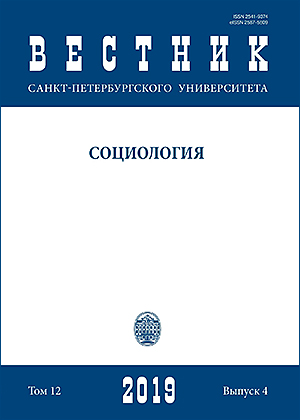Social media in local environmental conflicts
DOI:
https://doi.org/10.21638/spbu12.2019.405Abstract
Social networks have become an everyday phenomenon, performing the functions of interpersonal communication, entertainment, education, and news consumption. In this regard, social media is becoming an essential factor in political and public life, as well as one of the most important resources for social movements. This study focuses on how initiative groups in modern Russia (based on the example of the social network VKontakte) use social media during local environmental conflicts (to attract citizens to problematic situations and mobilize them). The study used a content analysis of virtual groups created in connection with local environmental conflicts, and a survey was conducted of the most active members of virtual groups and their leaders. The study identified the main functions performed by virtual groups (information, mobilization, etc.); the use of various resources groups (visual, etc.); use of various information sources (traditional media; social media, etc.). The digital participation of virtual groups’ members was analyzed, as well as the traditional political participation of the most active group members. The study illustrated the active use of groups for mobilization. At the same time, the analysis revealed low digital participation of social media users. Also, the results of the analysis showed that the majority of respondents, which could be attributed to the most active of the group members, also took part in traditional forms (rallies, pickets, public hearings, etc.). The study demonstrated that most group leaders believed that virtual groups contributed significantly to the mobilization of potential supporters during a conflict.
Keywords:
social media, local environmental conflicts, mobilization
Downloads
References
References
Downloads
Published
How to Cite
Issue
Section
License
Articles of "Vestnik of Saint Petersburg University. Sociology" are open access distributed under the terms of the License Agreement with Saint Petersburg State University, which permits to the authors unrestricted distribution and self-archiving free of charge.




